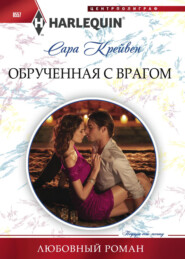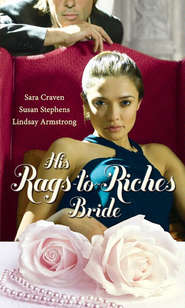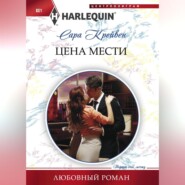По всем вопросам обращайтесь на: info@litportal.ru
(©) 2003-2024.
✖
High Tide At Midnight
Автор
Год написания книги
2018
Настройки чтения
Размер шрифта
Высота строк
Поля
‘What a fool!’ she whispered aloud, pressing her knuckles childishly against her streaming eyes. ‘What an utter fool!’
At last she lay quietly, her eyes closed, capable only of an occasional aching sob. She felt physically and emotionally drained, and she was scared as well. One certain thing had emerged from the unpalatable comments she had heard downstairs—she was going to have to leave the Priory, and fast. But where was she to go? Even the potential refuge of the painting school had been taken from her, and the remnants of her pride forbade her to ask for any kind of help from Cousin Patricia.
She sat up unwillingly, pushing her tumbled hair back from her face, while her brooding gaze travelled round the room, resting with a kind of painful affection on the few pieces of antique furniture that she knew her mother had chosen for this room when she had first come to the Priory as a bride. The fact that the chair covers were faded and the curtains and carpet had also seen better days only added to their charm. Above the white marble fireplace hung Laura Kerslake’s only attempt at a self-portrait, painted only a few years before her death. Morwenna’s eyes lingered on it with peculiar intensity, as if that serene face with the humorous eyes and the wryly twisted mouth, suggesting that the artist knew only too well that portraiture was not her forte, could provide her with some clue what to do for the future. She gave a small weary sigh at her own fancifulness, and her eyes wandered on past the portrait to the small group of landscapes on the adjoining wall.
Here, Laura Kerslake had been thoroughly at home. These were what Morwenna had always thought of as the Trevennon group. They were scenes done from memory of the place where Laura had spent her girlhood. Although she had been born and lived in London during her early years, the outbreak of the Second World War had caused her parents to seek a safer home for her, and so Laura, on the brink of her teens, had made a long, solitary journey to Cornwall to stay with some distant relatives. She had never returned to London. When the news had come that her mother and father had been the victims of a direct hit on their house during the Blitz, she had simply remained at Trevennon.
Trevennon. Morwenna climbed off the sofa and walked across the room to study the pictures more closely. Of all her mother’s work, these seemed more deeply imbued with the almost mystical, fey element which characterised it than any others. When she was small, Morwenna had gazed at the big, dark house on the cliff top with its twin turrets and tall, twisted chimneys and set her young imaginings of Camelot, of Tristan and Iseult among those sombre stones. Laura had laughed indulgently at such fancies, although at the same time she had pointed out that Trevennon owed more to the tin-miners than it did to any fabled knights and ladies.
Morwenna knew that the rugged coast nearby was littered with the remains of the mine-workings, and the ruined buildings and chimneys stood now only as the landmarks of a vanished prosperity. Trevennon, her mother had said, had been founded on that prosperity, but Laura had never given any hint as to what it owed its present subsistence.
In fact, when she looked, back, Morwenna realised that her mother had said very little about her life in Cornwall. But she had been happy there, or that was the impression Morwenna had always received. Besides, her own name was a Cornish one, and her mother would hardly have chosen it if it had revived any unhappy memories, although at the same time she was aware that her father had not approved the choice. ‘Pure romanticism’, he had called it, but with an edge to his voice rather than the indulgent note with which he usually greeted his wife’s whims. And he had used the same phrase, Morwenna remembered, when he had looked at the Trevennon group—the house on the cliff-top, the deserted Wheal Vaisey mine, the tiny harbour village of Port Vennor, and the cramped beach of Spanish Cove with the dark rocks standing up like granite sentinels against the swell of the tide.
‘Why do you say that?’ As if it were yesterday, Morwenna recalled the lift of her mother’s chin. ‘I wasn’t just painting a place. I was painting my youth, and all I knew then was peace, security and love.’ She had risen from the sofa and walked over to her husband, sliding her arm through his and resting her cheek against his sleeve. ‘I don’t doubt that you’re right, but leave me my illusions.’
‘Peace, security and love.’ As the words came back to her, Morwenna felt herself shiver. They were like an epitaph for her own hopes, she thought unhappily. Then she stiffened. A purposeful step was coming along the passage outside, and she turned to face the door as it opened. Lady Kerslake came in.
‘Oh, there you are, Morwenna. I’ve been looking all over the house for you,’ she said rather pettishly. ‘I was wondering whether you intended being in for lunch.’ She hesitated, then went on, ‘You see, Guy has just phoned to say that he’s coming down and bringing a friend with him and we thought….’ She let the words drift into silence and gave Morwenna a significant look.
Morwenna bit her lip. So Guy was bringing his latest fancy down to lunch, and his mother was checking to see that their inconvenient house-guest would accept the situation without showing that she cared, or making any kind of scene. Her temper rose slowly.
‘How nice,’ she said with assumed indifference. ‘But if my presence is going to cause any embarrassment I can easily pick up a snack at the Red Lion.’
‘Oh, my dear!’ Lady Kerslake’s lips parted in a smile of total insincerity. ‘As if we would expect you to do any such thing! What a silly girl you are, sometimes. Not, of course, that we would wish to interfere if you had made any plans. After all, you’re a grown woman now, and you have a life of your own to lead. It’s perfectly natural that you should want to be independent, and we don’t want to interfere, or feel that we’re holding you back in any way.’ She paused again, invitingly, as if waiting for Morwenna to confide in her. Her tone had been all interest and motherly concern, but Morwenna knew she would not have been deceived for an instant, even if she had not overheard that brief conversation in the drawing room. Cousin Patricia’s whole tone and attitude was hinting broadly that she had outstayed her welcome, and that they were waiting to hear what plans she had made to shift herself.
The humiliation of having to admit that she had no plans, and that even her embryo career as an artist had died an undistinguished death, was suddenly too much to bear. A germ of inspiration lodged in her brain, and before she could reason with herself or question the wisdom of what she was about to do, she spoke.
‘You really don’t have to bother about me any more, Cousin Patricia. I’d intended to tell you over lunch that I’m going away. I—I’ve been invited to stay at Trevennon—with my mother’s people—until I go to Carcassonne in the spring. The letter came this morning. It’s a wonderful opportunity for me. Cornwall’s a marvellous place for painters. My mother used to say that she got all the inspiration for her best work from her time at Trevennon,’ she ended, rushing her words nervously, as the thought occurred to her that Cousin Patricia might demand to see this mysterious invitation.
Lady Kerslake’s eyes rested wonderingly on the group of paintings over Morwenna’s shoulder, then came back to search her face rather frowningly. ‘Your mother had relatives in Cornwall? I wasn’t aware….’
‘Very distant relatives,’ Morwenna broke in. ‘Cousins heaven only knows how many times removed.’ Wildly she searched her memory for names that would add weight to her story. ‘It—it was Uncle Dominic who wrote to me.’ That was the name her mother had mentioned most of all. Dominic Trevennon who had taught the city-born girl to climb barefoot over the rocks, to row a boat, to fish, to lift the lobster pots and relieve them of their snapping contents. It had been Dominic too who had told her the legends that Morwenna remembered as bedtime stories. Tales of the ‘knackers’, the small malevolent spirits who inhabited the tin mines, whose tapping hammers presaged disasters, such as flooding or earthfalls. Tales of the galleon which had foundered off Spanish Cove during the storms that pursued the ill-fated Armada, and the gold it had carried, still to be found, Laura had said, among the sand of the cove by anyone reckless enough to climb down the cliff to search there and risk being cut off by the racing tide. And Morwenna had lain there round-eyed among the comfort of the blankets, hearing the screech of gulls and feeling the sand gritty under her bare toes as she delved among the shifting grains for the doubloons.
‘It all seems very sudden,’ Lady Kerslake was saying, her lips drawn into a thin line. ‘But I suppose you know what you’re doing. Have you met any of these—er—cousins before?’
‘No, but I feel I know them. My mother told me so much about them.’ Morwenna, guiltily conscious just how far this was from the truth, surreptitiously crossed her fingers in her jacket pockets.
‘Well, it’s very kind of them to offer you a home, under the circumstances,’ Lady Kerslake said sourly. ‘I do hope you won’t take advantage of their generosity, Morwenna. You can’t expect to be a burden on other people all your life, you know. But if it’s only until the spring, I don’t suppose it will matter too much.’ She gave a brisk nod. ‘Now, what about lunch?’
‘Oh, don’t bother about me.’ Morwenna’s nails dug deep into the palms of her hands. ‘I think I’ll go and see about my packing.’ Another meal in this house, she thought, would choke me.
‘As you wish,’ Lady Kerslake concurred, not troubling to hide her relief at the way the situation seemed to be resolving itself. She turned towards the door, then hesitated as if a thought had occurred to her. ‘If there are any of your mother’s paintings, Morwenna, that you would care to take with you, I hope you won’t hesitate to do so. Geoffrey and I were talking last night, and we agreed it would only be fair that you should have some keepsake of her, although there is no actual legal entitlement. I’m not suggesting, of course, that you should take any of the better-known canvases hanging downstairs, but if you want any of the pictures in this room you may have them. I don’t think they can be regarded as her best work by any means, but naturally they will be of sentimental value to you.’
If she had expected a show of delight, she was disappointed. Morwenna’s face was impassive and her few words of thanks merely polite. Lady Kerslake went away to arrange her lunch party reflecting that the girl was probably put out because she had not been allowed to take her pick of the more valuable paintings.
As soon as she could be sure that she had departed, Morwenna sank back again on the sofa, her legs shaking. She stared across the room at the painting of the lonely house on the bleak headland and her stomach contracted nervously. She thought wildly, ‘Oh, God, what have I done?’
She had always tended to be impulsive. It was a family trait, but it had never carried her to these lengths before. It had been impulsiveness that had led her to apply to the painting school. Many of the friends she had been at school with were rather desultorily pursuing careers as personal assistants or secretaries, but they seemed to be little more than glorified dogsbodies as far as Morwenna could see. Or they were helping to run boutiques, or serving in West End department stores. Somehow she had wanted more than that. And it hadn’t particularly pleased her when people said tolerantly, ‘Oh—Morwenna? Well, she’ll get married, of course,’ their eyes lingering appreciatively over her slender figure with the gently rounded hips and small, firm breasts.
She tried to control her whirling thoughts. After all, she wasn’t committed to going to Cornwall. Trevennon had been a let-out—the inspiration of the moment—something to save her face with Cousin Patricia. She didn’t have to actually do anything about it. Anyway, a wave of colour flooded her face, she couldn’t just wish herself on a group of strangers, in spite of her brave words to Lady Kerslake. She had no means of knowing whether the Dominic of whom her mother had spoken with such affection was still alive. He would be in his sixties at the very least, and the years that Laura Kerslake had spent at Trevennon would only be a distant memory.
She had sometimes wondered why her mother had not maintained contact with Trevennon over the years, but at the time it had never occurred to her to ask. She had been too young to consider the complexities of the situation, she thought, and after her mother’s death, too much probing into the past had never seemed quite appropriate. Besides, she had always had the feeling that her father had not shared her mother’s nostalgia for Cornwall. Nothing had ever been said, but the impression had been a strong one. Perhaps it had been nothing more than ordinary, and only too human jealousy of a time when she had lived and been happy without him, Morwenna thought wryly. Sir Robert’s love for his wife had been all-encompassing. But somehow she had felt the past was an area where she should not trespass with her questions, and now they could never be answered—unless of course she went to Trevennon herself.
She shook her head slowly, clenching her fingers together in her lap. She must stop thinking along those lines. The fact of the matter was that she was homeless, but that wasn’t the disaster it seemed. Friends were always flouncing away from the shelter of the parental roof after some devastating row or other, and they managed to survive. There were a number of names in her address book which she could call on in an emergency. People were always swopping flats, or marrying and moving out. There would be someone somewhere wanting another girl to make up the numbers. And there were jobs too. Not the sort of creative work she had planned on. For those she would need training—qualifications. But she would find something to do which would pay her share of the rent and food bills, and there were always evening classes she could go to.
She suppressed a grimace. It was a far cry from the spring in the South of France that she had envisaged, but she had only herself to blame. She was capable of far better work than that she had shown Lennox Christie. But she had known the money was there to buy her a place in his class, and she had simply not tried too hard. If she were trying now, it would be very different.
She took the crumpled letter out of her pocket and read it again slowly. While it held out no definite hope, it did offer her a second chance. But she would need to work very hard over the next few months to convince him that she had sincerity and application as well as talent, and wasn’t just another wealthy playgirl looking for an undemanding few months in the sun.
She got up restlessly and walked over to the window, staring out at the prospect of smooth lawns and leafless trees which unfolded itself before her. What she needed was a few months’ grace to do some serious painting, when what confronted her was the urgent necessity for job and flat-hunting. She tried to do some swift mental calculations, but the results were depressing. The pitifully small amount of money she had in her bank account would not be enough to feed and house her while she pursued this tenuous dream. It was time she recognised her hopes of a career even on the fringes of the art world as the fantasy they were, and got down to realities.
She sighed and cast a regretful look back over her shoulder at the group of paintings on the wall. Their appeal had never seemed more potent. If she took any of her mother’s work away with her when she went, it would be those and the self-portrait above the mantelpiece. But if she did take them, heaven only knew what she would do with them. She could not imagine them as a welcome addition to the decor in any of her friends’ flats. She supposed drearily they would have to be stored somewhere until she could find a proper home for them. Whenever that might be.
She was halfway to the door when the thought came to her. She stopped dead in her tracks and swung round again to survey the pictures. She might not be able to claim a temporary home at Trevennon, but surely, for her mother’s sake, they might be willing to store the paintings for her. If she took them down to Trevennon and explained the situation…. As long as she made it clear it was only a temporary measure. They would be far better there than locked away in some warehouse. And it might give the Trevennon family some pleasure too to know that Laura Kerslake had never forgotten….
There was some relief to be gained in knowing she had solved at least one of her problems, minor though it was. It was doubtful whether she would find such ready solutions for those that remained, nevertheless as she went to her room to begin to sort through her clothes and belongings, a tiny ray of hope began to burn deep inside her.
The next few days were not comfortable ones. Morwenna was thankful that she had announced that she was leaving in advance, otherwise she felt the atmosphere in the house would have been well-nigh unendurable. As it was, she could remind herself that the little barbs and snide remarks which came her way were only for a little while longer.
She had been totally ruthless with her packing. Most of her extensive wardrobe was now at the Vicarage awaiting the next jumble sale, and she had retained only the most basic elements. But this did not grieve her as much as parting with the childhood books and possessions that still occupied her bedroom. She had thought sentimentally that one day all these things could be passed on to her own children, but she knew she had to travel lightly, and the cherished articles were disposed of to the charity shop in the nearby town. She had soon reduced her possessions down to the contents of one large suitcase, while her painting gear was consigned to the depths of an old rucksack which she found in one of the attics. The Trevennon pictures and her mother’s self-portrait were carefully taken from their frames under Lady Kerslake’s eagle eye and made into a neat parcel.
Life did not become any easier with the arrival of Guy with his latest girl-friend in tow. She had dark, elaborately frizzed hair and a giggle that made Morwenna want to heave, but judging by Guy’s air of smug satisfaction, he saw nothing amiss.
Morwenna also had to cope with the added humiliation that Guy had obviously told this Georgina all about her, possibly with embellishments, and that Georgina’s reaction to the situation was to treat her with a kind of pitying contempt, mixed with triumph that Morwenna’s loss had been her gain.
Morwenna suffered this in a kind of teeth-grinding impotence, but she knew there would be no point in trying to convince Georgina that her relationship with Guy had been very much in the embryo stage, and that she was not stoically trying to conceal an irrevocably broken heart. It would have given her immense satisfaction to tell Georgina that she was welcome to Guy, and that her only regret was that she had not had the wit to see the truth behind his advances in the first place, but she knew that the other girl would not believe her.
However, it was Vanessa’s attitude that Morwenna found the most surprising. As the time approached for her departure, her cousin became almost cordial, even to the point of insisting on driving her up to London to catch the Penzance train. Morwenna accepted the offer, but she did not deceive herself that it was promoted by any new-found liking for herself. She suspected that Vanessa was taking her to the train merely in order to make sure that she was in fact going to Cornwall, and was seeking her company during her remaining hours at the Priory simply to enable her to avoid Georgina to whom she had taken an instant and embarrassingly open dislike.
Life at the Priory, Morwenna decided on reflection, seemed likely to become hell for man and beast quite shortly, especially if Guy decided to marry Georgina and her father’s money of which she spoke so often and with such candour, and in a way this helped to alleviate the pain of parting from her home. Nevertheless she cried herself to sleep each night, her tears prompted not merely by grief for the losses she had suffered but fear as well. It was all very well to tell herself robustly that no one need starve in these days of the Welfare State, but there was no escaping the fact that she had led a reasonably sheltered existence up to a few short weeks ago, and that what faced her was likely to be both difficult and unpleasant. Nor was it any consolation to remind herself of the thousands of girls of her age who were far worse off than she was herself. She felt totally and bewilderingly alone. From being the pivot on which the family’s love turned, she was now an outcast, and she felt all the acute vulnerability of her position.
But when the day of her departure actually arrived, she was relieved. She said a stilted goodbye to Sir Geoffrey in the study which had once been her father’s and was acutely embarrassed when he handed her with a few mumbled words a slip of paper which turned out to be a sizeable cheque. Blushing furiously, she managed a word of thanks and as soon as she was outside the door, she tore the cheque into tiny fragments and stuffed them into a jardiniere, conveniently situated on its pedestal further along the corridor.
Lady Kerslake returned to her former saccharine amiability, giving the impression that it was only Morwenna’s own intractability that was taking her away from the Priory. Morwenna, putting her own cheek dutifully against the scented one turned to her, wondered with a wry twist of her lips what Cousin Patricia’s reaction would be if she suddenly took her at her word and announced that she was going to stay.
Vanessa was waiting in the hall tapping her foot impatiently. She made no attempt to help Morwenna with her case or rucksack but walked briskly ahead of her to the car and sat revving the engine while her cousin stowed her luggage in the boot. Morwenna climbed into the passenger seat and looked steadily ahead of her. There was no point in looking back. The Priory was closed to her now and lingering backward glances as the car started down the drive would only distress her.
Vanessa gave her a sideways glance as they waited to emerge from the drive on to the road.
‘You’re a cool customer, I must say, Wenna,’ she remarked. ‘One moment you’re drooping about the place like Patience on a monument or something, and the next you’re off—and to Cornwall of all places! You must be completely mad. I mean, it may be all very well in the summer, except for the crowds, of course. But in winter time—my God!’
She paused but Morwenna made no response, so she continued, ‘I thought Guy might have made the effort to come down and say goodbye—especially under the circumstances.’ She waited again, but there was still no reply, and her voice was slightly pettish as she went on, ‘I suppose he thought if he made a fuss it might upset the frightful Georgina.’
Morwenna said calmly, ‘There was absolutely no reason for him to make any kind of fuss.’
‘Oh, come off it, Wenna.’ Vanessa put her foot on the accelerator and overtook a van on a slight bend to the alarm and indignation of its driver. ‘You know quite well that you and Guy had a thing going. It can’t be pleasant for you to see him with someone else. I don’t blame you at all for going off to lick your wounds somewhere—I think I’d do the same in your position. But if it’s any consolation to you, Mother was furious over Georgina. It’s been almost amusing watching her try to be civil to her. I think in some ways she would have preferred it if Guy had insisted on sticking to you.’
‘Thank you,’ Morwenna said drily.













